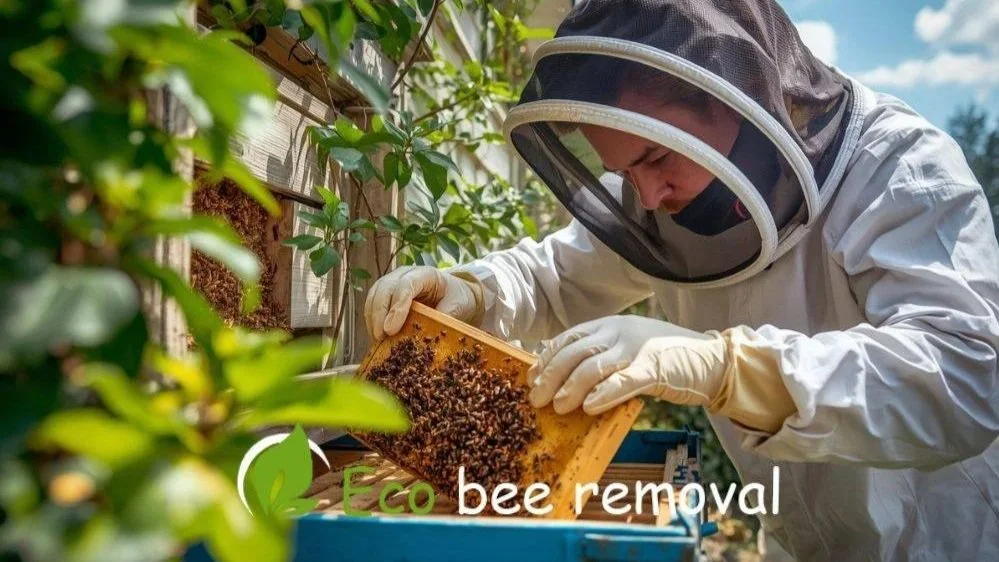What Would Happen if Bees Disappeared? The Alarming Truth
Introduction: Why the World Depends on Bees
Bees might be small, but their impact on our planet is massive. These tiny pollinators are responsible for much of the food we eat and play a key role in maintaining healthy ecosystems. Yet, bee populations are declining around the world at an alarming rate. From habitat loss and pesticide use to climate change, bees are facing serious threats — and if they were to disappear completely, humanity would face devastating consequences.
So, what exactly would happen if bees disappeared? Let’s explore how the loss of bees would affect agriculture, biodiversity, and even human survival.
Bee pollinating flowers representing the importance of bees for nature and food production.
1. The Collapse of Global Food Production
Bees are the world’s most important pollinators. Around 75% of all flowering plants and one-third of global food crops depend on pollination — mostly done by bees. Without them, crops such as apples, almonds, blueberries, cucumbers, and watermelons would drastically decline.
If bees vanished, many of these foods would become scarce or disappear altogether. Farmers would have to rely on expensive artificial pollination methods, leading to higher food prices. In fact, without bees, the global economy could lose billions of dollars each year due to reduced crop yields.
Imagine a world where your favorite fruits and vegetables are no longer available at the grocery store — or cost 10 times more than they do now. That’s the reality we could face without bees.
2. Livestock Would Suffer Too
The disappearance of bees wouldn’t just affect plants — it would also impact animals, especially livestock. Many cattle and dairy farms rely indirectly on bee pollination because bees help grow crops like clover and alfalfa, which are used to feed livestock.
Without these bee-pollinated plants, the quality and availability of animal feed would decline. This means fewer dairy products, less meat, and higher food prices overall. The entire food chain would be disrupted, proving that bees are essential for both plant and animal agriculture.
3. A World Without Honey
Of course, if bees disappeared, honey production would stop entirely. Honey is not just a sweet treat — it’s a natural antibiotic, used in medicine, skincare, and even wound treatment for centuries.
Without bees, we’d lose not only honey but also beeswax, royal jelly, and propolis — all valuable products used in health, beauty, and industry. The cultural and economic impact of losing these natural products would be enormous.
4. The Fall of Ecosystems and Biodiversity
Bees don’t just help farmers — they also support wild ecosystems. They pollinate flowering plants, which provide food and shelter for countless insects, birds, and mammals.
If bees disappeared, many plant species would stop reproducing and eventually die out. This would lead to a domino effect — fewer plants mean less food for herbivores, which then affects predators. Forests, meadows, and grasslands would lose diversity and vitality, leading to widespread ecological imbalance.
In short, bees are a foundation of biodiversity. Their disappearance could lead to the extinction of numerous plant and animal species, creating silent, colorless landscapes where once vibrant ecosystems thrived.
5. Climate Change Would Worsen
It might surprise you, but bees also play a role in fighting climate change. Healthy ecosystems with abundant plants and trees capture carbon dioxide, one of the main greenhouse gases. Bees, by pollinating these plants, help maintain this natural carbon storage system.
If bees disappeared, many pollinated plants would decline, reducing the Earth’s ability to absorb CO₂. This would accelerate global warming and further destabilize the planet’s climate — a dangerous cycle that would be hard to reverse.
6. Human Nutrition Would Decline
Without bees, our diets would change dramatically. Many fruits, nuts, and vegetables would vanish, leaving us with fewer sources of essential vitamins and nutrients.
Human health would suffer from nutritional deficiencies. Vitamin C from citrus fruits, antioxidants from berries, and healthy fats from nuts would all become harder to find. Our plates would be dominated by wind-pollinated crops like wheat, rice, and corn — filling, but not necessarily nutritious.
Over time, this lack of dietary diversity could increase health issues like obesity, heart disease, and vitamin deficiencies.
7. Economic Disaster for Farmers and Food Industries
Bees contribute over $200 billion annually to the global economy through pollination services. If bees disappeared, farmers would lose a significant portion of their income. Crop failures would become common, food supply chains would collapse, and unemployment in agriculture-related industries would skyrocket.
Countries that rely heavily on pollinated crops — such as the U.S., India, and China — would face severe economic instability. Food exports would decline, prices would rise, and millions of people could fall into food insecurity.
8. Emotional and Cultural Impact
Beyond their ecological and economic importance, bees hold cultural and spiritual significance in many societies. They symbolize community, cooperation, and hard work. Their disappearance would represent not just an environmental loss, but also a deep emotional and cultural one.
Imagine a world where children never see bees buzzing among flowers — a world without honey in their tea, without the golden hum of pollinators in spring. The silence would be haunting.
9. Can Humanity Survive Without Bees?
Technically, humans could survive for a while without bees, but life would be much harder. Scientists have experimented with mechanical pollinators and hand-pollination, but these methods are costly and inefficient.
Simply put, there is no replacement for bees. They work tirelessly and naturally, pollinating billions of plants every day — something no machine can replicate on a global scale.
10. How We Can Protect Bees and Prevent Their Disappearance
While the future may sound bleak, there’s still hope. Everyone can help protect bees by taking small but meaningful actions:
Plant bee-friendly flowers like lavender, sunflowers, and wildflowers.
Avoid using pesticides in gardens or lawns.
Support local beekeepers who practice ethical, eco-friendly honey production.
Provide water sources for bees during hot days.
Educate others about the importance of bee conservation.
Eco Bee Removal, for instance, is dedicated to saving bees through live bee relocation instead of extermination. By choosing eco-friendly bee removal services, you’re helping protect pollinators and preserve our planet’s future.
Conclusion: Saving Bees Means Saving Ourselves
If bees disappeared, the world would lose far more than just honey. We’d face food shortages, collapsing ecosystems, rising prices, and a major environmental crisis.
Bees are not just insects — they are life-givers, the unseen workers that keep our planet balanced and thriving. Protecting them isn’t optional; it’s essential for our survival.
Let’s act now to save the bees, protect biodiversity, and ensure a healthy future for generations to come. Because when we save the bees — we save ourselves.

